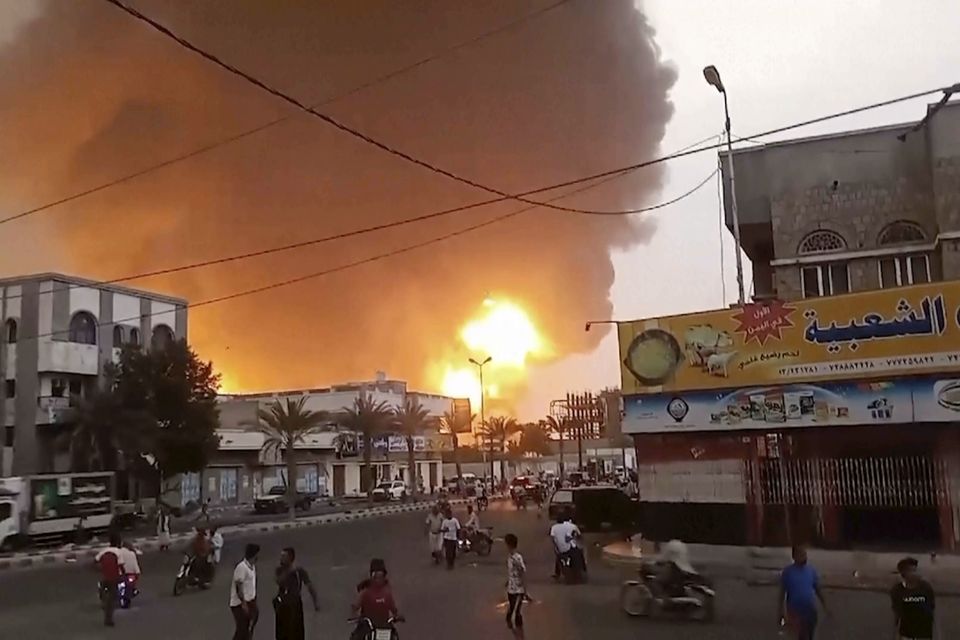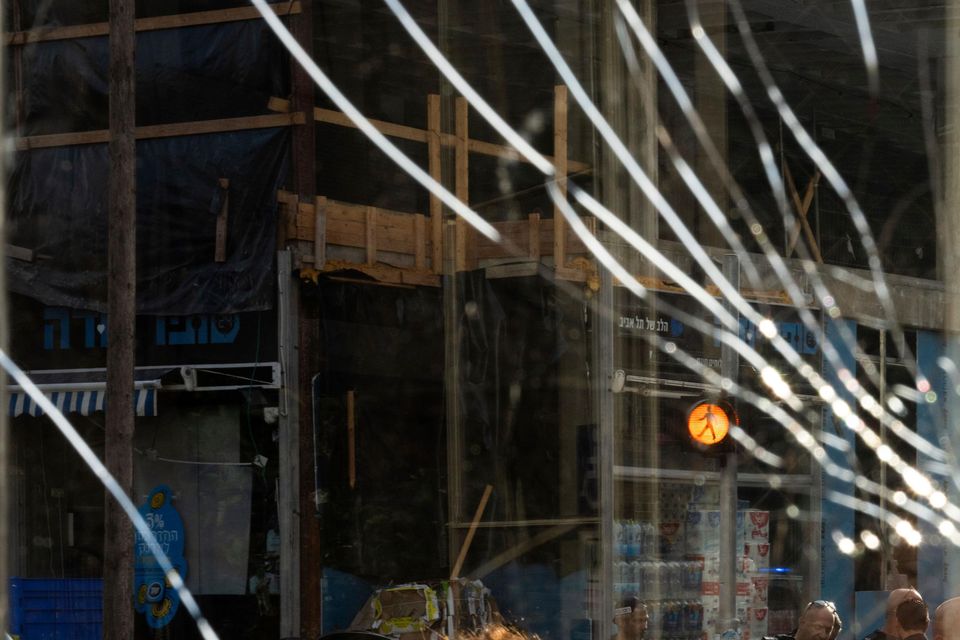The Israeli military has said it intercepted a missile fired from Yemen early on Sunday, hours after Israeli warplanes struck several Houthi targets in the Arabian peninsula country.
The Israeli air strikes – in response to a deadly Houthi drone strike on Tel Aviv – mark the first time Israel is known to have responded to repeated Houthi attacks throughout its nine-month war against Hamas.
The burst of violence between the distant enemies has threatened to open a new front as Israel battles a series of Iranian proxies across the region.
The Israeli army late on Saturday confirmed the air strikes in the western Yemeni port city of Hodeidah, a Houthi stronghold.
It said the strikes, carried out by US-made F-15 and F-35 warplanes, were a response to hundreds of Houthi attacks.
Israel struck Houthi targets in Yemen on Saturday (AP)
Israel, along with the US, Britain and other Western allies with forces in the region, have intercepted almost all of the Houthi missiles and drones. But early on Friday, a Houthi drone penetrated Israel’s air defences and crashed into Tel Aviv, Israel’s commercial and cultural capital, killing one person.
The Israeli military said Saturday’s air strikes, some 1,000 miles from Israel, were among the most complicated and longest-distance operations by its air force. It said it hit the port because the area is used to deliver Iranian arms to Yemen.
The Ministry of Health in Sanaa said 80 people were injured in a preliminary toll of the strikes in Hodeidah, most of them with severe burns. The Israeli attack unleashed a massive fire in the city’s port.
Israel’s defence minister, Yoav Gallant, said: “The fire that is burning now in Hodeidah is seen across the Middle East and the significance is clear.”
He vowed to carry out similar strikes “in any place where it may be required”.
A broken window at the scene of an explosive drone attack in Tel Aviv, Israel, on Friday (Oded Balilty/AP)
On Sunday, the Israeli military said the surface-to-surface missile fired from Yemen was intercepted before reaching Israeli territory.
The Houthis are among several Iranian-backed groups to have attacked Israel in solidarity with Hamas since the October 7 attack by the Palestinian militant group triggered the ongoing Israeli offensive in Gaza.
In addition to fighting Hamas, the Israeli military has been engaged in daily clashes with the Hezbollah militant group in Lebanon. These clashes have raised concerns that the fighting could spill over into a full-blown war with Lebanon and beyond.
The Hodeidah port is also a gateway for supplies to enter Yemen, which has been engulfed in civil war since 2014, when the Houthis seized much of northern Yemen and forced the internationally recognised government to flee from Sanaa. A Saudi-led coalition intervened the following year in support of government forces, and in time the conflict turned into a proxy war between Saudi Arabia and Iran.
The war has killed more than 150,000 people, including fighters and civilians, and created one of the world’s worst humanitarian disasters.
Houthi spokesman Mohammed Abdulsalam posted on X that the “blatant Israeli aggression” targeted fuel storage facilities and the province’s power station. He said the attacks aim “to increase the suffering of the people and to pressure Yemen to stop supporting Gaza”.

